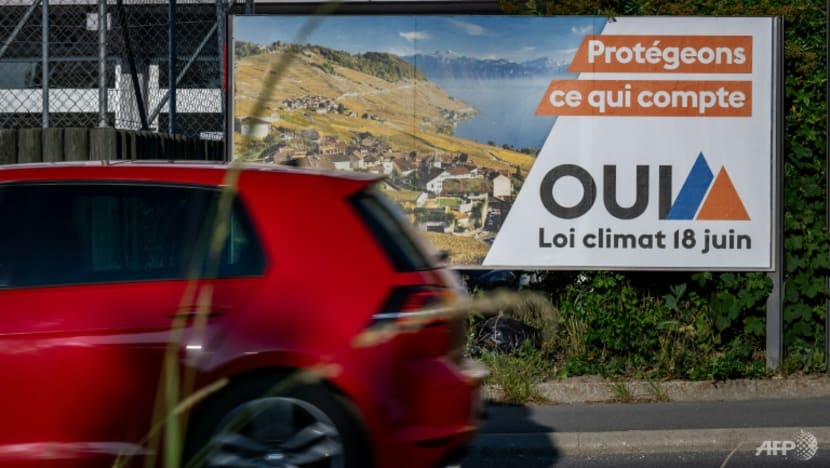GENEVA: The Swiss, feeling the impact of global warming on their rapidly melting glaciers, on Sunday (Jun 18) backed a new climate bill aimed at steering the country towards carbon neutrality by 2050, according to early estimates.
The initial projections from the gfs.bern institute showed that 58 per cent of Swiss voters had said "yes" in the referendum on the new law, which would require Switzerland to slash its dependence on imported oil and gas, scaling up the development and use of greener and more homegrown alternatives.
Voters also appeared to have overwhelmingly backed adopting a global minimum tax rate of 15 percent for multinational corporations, with 79 per cent voting in favour, according to the projections published shortly after polls closed at noon local time.
Recent opinion polls had indicated strong but slipping support for the climate bill, amid an anxiety-infused campaign around electricity shortages and economic ruin driven by the populist right-wing Swiss People's Party (SVP).
Supporters had argued the "Federal Act on Climate Protection Targets, Innovation and Strengthening Energy Security" is needed to ensure energy security.
They say it will also help address the ravages of climate change, highlighted by the dramatic melting of glaciers in the Swiss Alps, which lost a third of their ice volume between 2001 and 2022.

